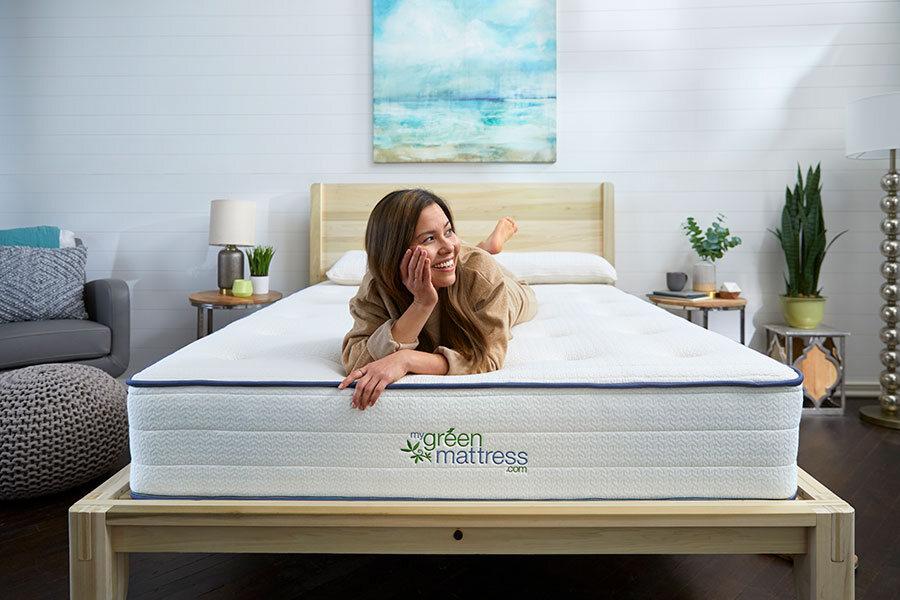In a world increasingly attuned to environmental sustainability, the choices we make about everyday products take on new significance—especially when it comes to our sleeping surfaces. As consumers become more conscious of the impact of their purchases on the planet and their personal health, organic and eco-friendly mattresses have emerged as a popular alternative to traditional bedding options. But with enticing claims of natural materials, reduced chemical exposure, and a smaller carbon footprint often comes a heftier price tag. Are these premium mattresses truly worth the investment, or are they just another trend in the growing market of green products? In this article, we’ll explore the benefits, potential drawbacks, and overall value of organic and eco-friendly mattresses, helping you navigate this eco-conscious territory as you seek a restful night’s sleep.
Understanding the Benefits of Organic and Eco-Friendly Mattresses
When it comes to choosing a mattress, the materials used and their impact on both personal health and the environment are becoming increasingly important to consumers. Organic mattresses are crafted from natural materials such as cotton, latex, and wool, grown without harmful pesticides or synthetic fertilizers. This not only ensures a healthier sleeping environment for you but also contributes to sustainable agriculture. Additionally, eco-friendly mattresses often tout certifications like GOTS (Global Organic Textile Standard) and GOLS (Global Organic Latex Standard), which verify their adherence to strict environmental and safety standards, providing peace of mind while you sleep.
Aside from their health benefits, there are several other advantages to consider with organic and eco-friendly mattresses. These products help reduce your carbon footprint, as they are typically produced with lower energy consumption and minimal waste. Furthermore, many eco-friendly mattresses are designed with sustainability in mind, utilizing non-toxic and biodegradable materials that break down naturally at the end of their lifespan. The result is a product that not only enhances your well-being but also promotes a greener planet. Here are some key benefits:
- Healthier sleep environment: Fewer chemicals and allergens.
- Durability: Often longer-lasting than conventional options.
- Sustainable production: Lower environmental impact.
- Improved breathability: Natural materials promote airflow.
| Feature | Organic & Eco-Friendly | Conventional |
|---|---|---|
| Materials | Natural & Non-toxic | Synthetic & Treated |
| Production Process | Sustainable Practices | Mass Production |
| Longevity | High Durability | Varied Quality |

Evaluating the Price Tag: Are Higher Costs Justifiable?
When contemplating the investment in an organic or eco-friendly mattress, many potential buyers find themselves weighing the benefits against the often hefty price tag. It’s essential to look beyond the numbers and consider what you receive in return. Organic mattresses typically utilize natural materials free from harmful chemicals and pesticides, leading to a healthier sleep environment. This commitment to quality not only enhances your well-being but also contributes to more sustainable production practices that benefit the planet. Investing in such a mattress can mean supporting ethical companies that prioritize environmental stewardship and craftsmanship over mass production.
Furthermore, the longevity and durability of organic mattresses can play a significant role in justifying their cost. While a traditional mattress may require replacement every few years, high-quality organic options often boast extended lifespans due to superior materials and construction techniques. Consider the long-term benefits of investing in a product that promotes health and sustainability while providing greater durability. Below is a quick comparison table to illustrate key differences:
| Feature | Traditional Mattress | Organic Mattress |
|---|---|---|
| Materials | Synthetic fabrics and foams | Natural, non-toxic materials |
| Durability | 5-7 years | 10-15 years |
| Health Impact | Potentially harmful chemicals | Hypoallergenic, safer sleep |
| Environmental Impact | Unsustainable production | Eco-conscious practices |

Comparative Analysis of Materials: What Truly Matters for Your Sleep
When it comes to mattresses, the choice of materials can significantly influence both comfort and health. Organic and eco-friendly mattresses often utilize natural materials such as organic cotton, natural latex, and wool, which are known for their breathability and moisture-wicking properties. These materials not only contribute to a more restful sleep by regulating temperature but also minimize exposure to harmful chemicals often found in conventional mattresses, such as flame retardants and synthetic foams. As consumers become increasingly health-conscious, an understanding of how these materials contribute to overall sleep quality becomes paramount.
Price, however, is a crucial factor in the decision-making process. Eco-friendly options tend to be priced higher due to their sustainable sourcing and manufacturing processes. Still, when weighing the cost against potential benefits, consider the long-term investment in your health and well-being. To provide clarity on the value proposition, the following table outlines some key differences between traditional and organic mattresses:
| Feature | Traditional Mattresses | Organic & Eco-Friendly Mattresses |
|---|---|---|
| Materials Used | Synthetic foams, chemical treatments | Natural fibers, sustainable materials |
| Durability | Average lifespan: 5-7 years | Average lifespan: 10-15 years |
| Health Impact | Higher exposure to VOCs | Low/no chemical exposure |
| Price Range | Affordable options available | Premium pricing model |

Expert Recommendations: Choosing the Right Sustainable Mattress for You
When selecting a sustainable mattress, consider a variety of factors to ensure you find the perfect fit for your needs and preferences. Start by examining the materials used in the mattress. Look for options made from organic cotton, natural latex, or recycled materials. Each of these materials not only reduces environmental impact but also enhances comfort and breathability. Additionally, prioritize certifications such as the Global Organic Textile Standard (GOTS) or the Global Organic Latex Standard (GOLS), which ensure that the products meet stringent ecological and social criteria.
Also, consider your sleeping habits and any specific requirements you may have. Different mattress types cater to various sleeping styles, such as side, back, or stomach sleepers. It’s essential to pay attention to firmness levels, which should align with your comfort preferences. Here are some key features to review:
- Support: Look for proper spinal alignment.
- Durability: Check for warranties and expected lifespan.
- Breathability: Ensure the materials promote airflow to regulate temperature.
- Hypoallergenic properties: Ideal for individuals with sensitivities.
Lastly, don’t forget to read customer reviews and consider trial periods offered by manufacturers. A hands-on approach can help you better understand the mattress’s feel and performance over time, making it easier to decide if the investment in sustainability matches your lifestyle and comfort requirements.
Closing Remarks
In conclusion, the decision to invest in an organic or eco-friendly mattress is as much a personal journey as it is a financial one. As we’ve explored, these mattresses offer a unique blend of sustainability, health benefits, and comfort, catering to those who prioritize their well-being and the planet. While the price tag may raise eyebrows, the long-term gains—both in sleep quality and environmental impact—present a compelling argument for many shoppers.
Ultimately, the choice rests in your hands. By weighing the pros and cons, considering your unique sleep needs, and reflecting on your commitment to sustainability, you can determine whether the benefits of an organic or eco-friendly mattress align with your values and lifestyle. After all, restful sleep should not come at the expense of our planet; instead, it should foster a deeper connection to it. As you navigate through the myriad options available, may you find a mattress that supports not only your well-being but also the health of our Earth for generations to come. Sweet dreams await!














Leave feedback about this